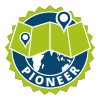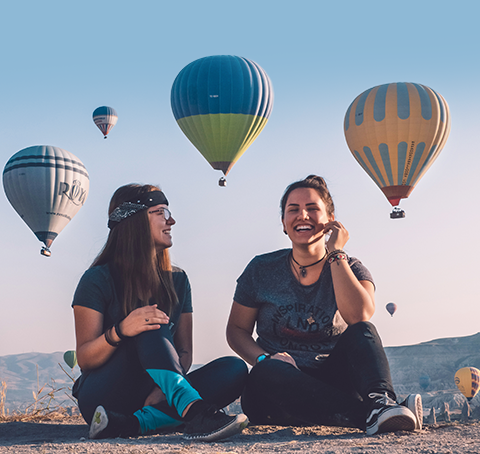Profile information

Host is looking for help immediately

Host rating
100 %

Reply rate
100.0 %
Usually responds within 1 day

Feedback
36

ID verified

Email verified
Badges (4)




Details

Description
We live on the slopes of the San Pedro volcano, in a wild isolated area of Lake Atitlan that can only be accessed by water. No roads, no close neighbours, no noise. Just nature, birds and a very beautiful beach. We want to build a home in this paradise.
At the moment we are some humans, some chickens, 2 dogs, 1 cat and lots of hopes.
Since we arrived 2 years ago, we have been working on many different projects in the land, that help us becoming more and more sustainable every day:
-Beach: we built two huge natural retaining walls that are helping us collecting a lot of sand for construction and at the same time creating our own beach.
-Tul: we stuffed part of our lake shore with this great aquatic plant which roots reduce water contamination while its dried leafs serve to craft mats and pillows.
-Multigrafted trees: we are getting the rootstocks ready for 10 different fruit tree genus (citrus, prunus, persea, mangifera, malus, pyrus, solanum, morus, ficus and annona) that will potentially produce 50+ different fruits in some years time.
-Vermicomposting: we manage a large population of over two million Eisenia fetida (red wigglers/californian red worms) that process 100% of our food waste.
-Dry toilet composting: thanks to wild Hermetia illucens (black soldier fly larvae) we are succesfully processing 100% of our feces.
-Chickens: we are breeding an autonomous and super resistant spieces of chicken. At the moment 12 of them live freely and independent in the land, self-resourcing their own food and water and sleeping in caves.
-Living mulch: we use 4 different spieces as cover crops: white clover, comfrey, baby sun rose and asthma-plant.
-Plant diversity: matching all the native species that are found in the area, we have included a big variety of other plants (cactus, palms, suculents, orchids, medicinals, aromatics...) that we resourced from friends, local nurseries and places we've visited.
-Nursery: we created a space dedicated to babysit 5000+ small seedlings and replicate numerous spieces of plants.
-Tree forest: half of the land is being reforested with pine, cipress, cedar, teak, fir, eucalyptus, jacaranda, matilisguate, mango, lychee, jackfruit, papaya, lemon and other firewood/fruit/medicinal trees.
-Living fence: to enclose this tree forest, we are growing a massive living fence (lemongrass and sugarcane) that one day will allow goats, sheeps and pigs to thrive in).
-Transforming raw materials: jams, tinctures, glycerates, syrups, soaps, shampoos, toothpastes, lipsticks, balms, wines, vinegars, incenses, oils... We try our best to profit from the abundance we've been gifted.
Types of help and learning opportunities
Art Projects
Help with Eco Projects
Gardening
DIY and building projects
Animal Care
Creating/ Cooking family meals
Help around the house
General Maintenance

UN sustainability goals this host is trying to achieve

Cultural exchange and learning opportunities
The volunteers who visit us will be in contact with our local friends, from whom they will be able to learn various skills and knowledge related to the ancient Mayan culture. Local stories (La Llorona, Xocomil...), tools (machete, piocha, azadon...), traditions (Maximon, easter...) or plant based medicines (milenrama, apazote, ruda...) are just a small portion of what you can expect.
The local language of this region of the lake is Tz'utujil and the inhabitants of Santiago Atitlán, the nearest town, practice and preserve it. The town can be reached by cayuco, which takes approximately 45 minutes paddling. There you can visit the various shops and markets of the town, get money, eat in a restaurant, buy SIM chip or take a boat to visit other towns on the lake. The average cost of the trip from Santiago Atitlan 30Q (4$).
During your free time there are multiple things you can do.
Trekking/walking:
-San Pedro volcano (4h 10km 1500m+)
-Toliman volcano (8h 19km 1600m+)
-Atitlan volcano (6h 13km 1600m+)
-Tepepul waterfalls (4h 12km 900m+)
-Chuitinamit (2h 5km 200m+)
-Walk to San Pedro village (3h 7km 300m+)
-Walk to Santiago village: (8h 20km 300m+)
Tourism/relaxing:
-Visit Santiago Atitlan village (2h)
-Visit San Lucas and Cerro de Oro (4h)
-Visit San Juan and San Pedro (4h)
-Visit San Marcos and Tzununa (8h)
-Visit Panajachel and Sololá (8h)
-Visit Fuentes Georginas termal baths (1 day)
Help
Volunteers work 4h/day Monday to Friday. Working hours are always scheduled from 7:00 to 9:00 and 10:00 to 12:00.
At this moment the work to be done can be very rutinary or boring (move rocks, weeding, collecting dry leafs...) and the same thing might be needed to be done many days in a row sometimes.
Languages
Languages spoken
Catalan: Fluent
English: Fluent
Spanish: Fluent
French: FluentThis host offers a language exchange
You can improve a lot your Español here! We've had many people speaking basic Spanish after just 1 month.
Accommodation
In our outdoor kitchen we have a solar oven, a rocket stove, a gas stove and boiling pan, iron casted pan, plates, glasses, cutlery, well the basics are covered. The same goes for the meals. The use of the kitchen includes drinking water, vegetables, fruits, rice, oats, eggs, beans, lentils, oil, salt... the basics are covered for all the meals of the day, every day of the week.
The cooking, the cleaning and the tidying of the common areas are things we don't considerate in the working hours and as a community we expect everybody to participate on those tasks equally. Breakfast is mostly freestyle and lunch and dinner are shared meals.
We have a dry toilet and for the moment we take baths in the lake. Often people use their swim suit when they feel shy to shower because it's exposed. We dont have a biodigestor yet so it is very important that you bring your own hygene eco products (shampoo/soap/toothpaste). If you don't have any and you tell us in advance, we can get some for you for 35Q/piece (4.5$)
What else ...
We can't leave the property alone and we always coordinate so that at least one of us stays behind.
We share our home with a big variety of spieces, some poisonouss like the coral snake, black widdow, rattlesnake, scorpions... Fortunately these animals are rarely seen during daylight, therefore having a day life is very helpful.
We are isolated. That is something important to think about. There isn't any store near us which you could access by foot so you shold be organized for buying anything you may want, tobaco or other personal needs. There is no electricity here either, so if you need to charge your phone or powerbank, you will need to make your way to town through the lake.
At Santiago Atitlan's dock you can rent a local paddling boat for 5Q (0.65$) a day. That will let you be independent during your stay. There is also the possibility to hire a private boat from the land to Santiago for 50Q (6.5$).
About the weather: it can change from one year to the next (it surely does) but the usual is November to May dry season: no rain or max once a month. May to November wet season: rains mainly in the afternoon 3/4 days a week.
A little more information

Internet access

Limited internet access

We have pets

We are smokers

Can host families

How many Workawayers can stay?
More than two

Hours expected
4 hours a day, 5 days a week
Feedback (21)
The view on the lake is stunning, it's the perfect place to disconnect from the digital life since there's no electricity (although network signal is good, in case you want to make video calls), and it felt like a nice adventure everytime we paddled to Santiago to recharge our devices.
Hugo is a very good… read more
The work is hard, but I really enjoyed it too: I got very good at digging up roots! It's the perfect place to reconnect to yourself - both in the work and in my free time, I felt… read more
Photos
Feedback
These are extra optional ratings when members leave feedback. The average rating left for each option is displayed.
Accuracy of profile:
(5.0)
Cultural exchange:
(4.9)
Communication:
(5.0)
The view on the lake is stunning, it's the perfect place to disconnect from the digital life since there's no electricity (although network signal is good, in case you want to make video calls), and it felt like a nice adventure everytime we paddled to Santiago to recharge our devices.
Hugo is a very good… read more
The work is hard, but I really enjoyed it too: I got very good at digging up roots! It's the perfect place to reconnect to yourself - both in the work and in my free time, I felt… read more
They are smiley and nice people, they are expert vegan food cookers, they worked hard and added a really nice vibe to the community.
i enjoyed my stay by the lake and am happy to have met everyone.
the place itself is as peaceful and quiet as it gets (most of the time) which is nice. plenty of time to become a pro after work, playing with the dogs, swimming, hiking the volcano( super steeep),or cooking something nice with all the lovely… read more
Paul es una persona muy alegre, divertida y creativa! Cumplió en todo momento las expectativas de trabajo y fue un gusto vivir en comunidad con él.
Muchas gracias Paul!! Vuelve pronto ;)
We recommand 100% to come here! However we think it is better to come here… read more
Looking forward to hosting you again soon.… read more
Fred was very motivated when doing his tasks, he was always the first person to grab a tool when the working time arrived, he was also curious and wanted to learn a lot. When… read more
Te echaremos de menos, Javi!
Es muy bueno, claro y directo al momento de asignar la tareas, las cuales pueden ser todo tipo. Tambien se vive mucho… read more
It's true that there's something very special about it... It could be the beauty of the Atitlan lake, the surrounding volcanos, the human exchange, Milpa & Jocote or you😁
We had a really great and unique time with you guys! Thank you as well to Sid, Fred, Javiera : you are amazing… read more
Hugo is an easy going person, always in good mood and trying to find solutions if there is problems! I had great moments there with him, the others volunteers and the two lovely dogs!
About the work he is flexible and I could choose if I prefer to work on mornings/afternoons and which days off I wanted to take!
The place… read more
Please come back dude!
I spent two wonderful weeks in the company of Hugo a very easy man and amazing person the other volunteers was super cool, I really enjoy my time
the place is beautiful I recommend to all nature lovers
I will come back for sure
Thank Hugo
MS
Thanks so much guys can’t wait to come back
We were more than pleased to have you on our land and hope to host you again one day :)
We were more than pleased to have you on our land and hope to host you again one day :)
Thank you for… read more
If you want to discover a little piece of virgin paradise it is here! Never have I felt… read more































